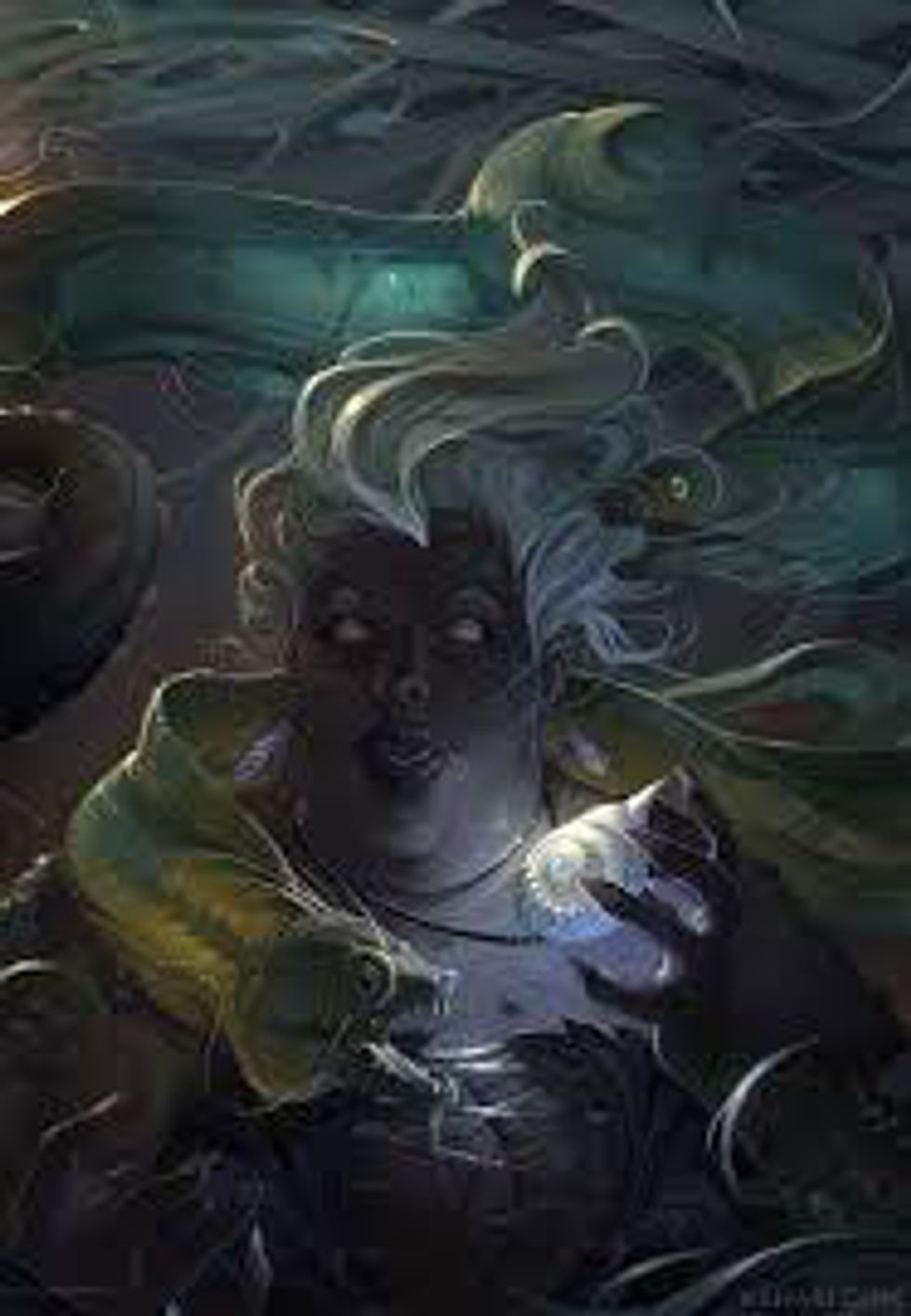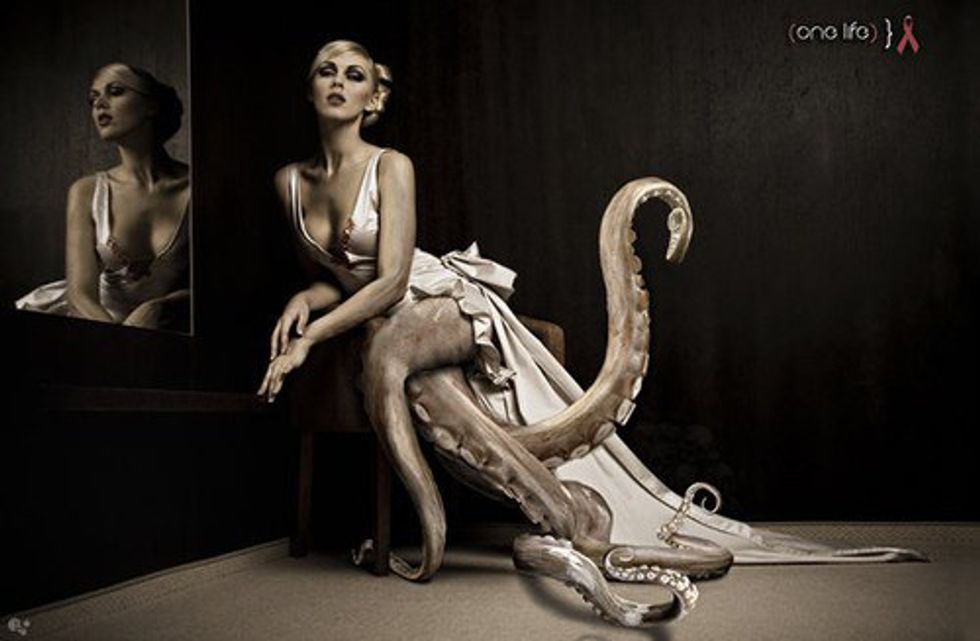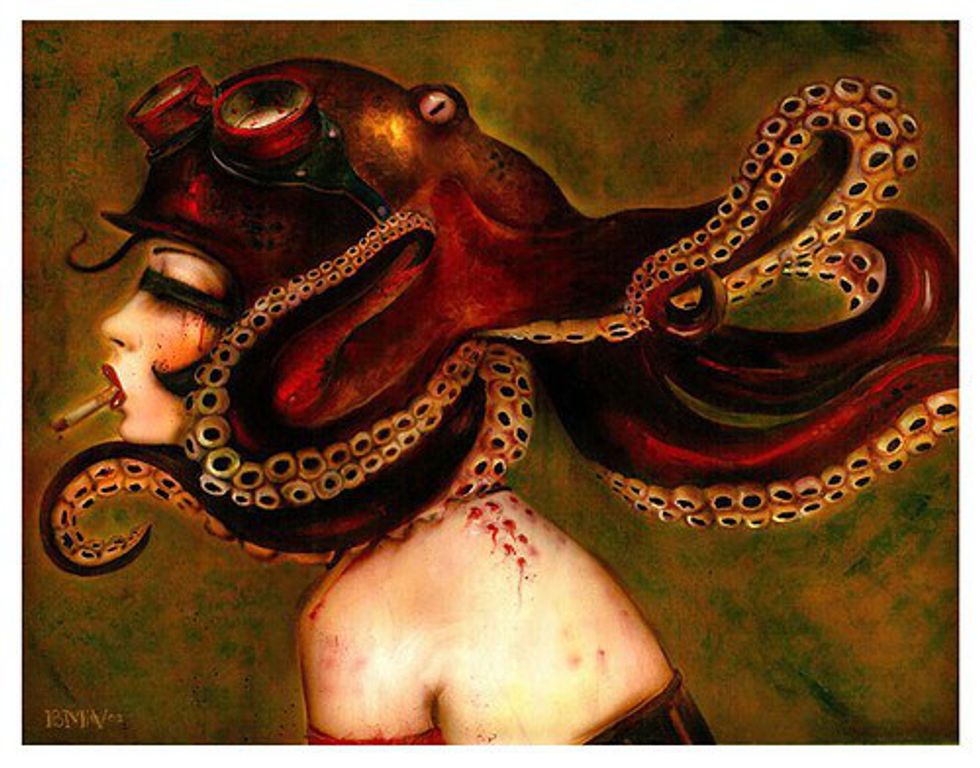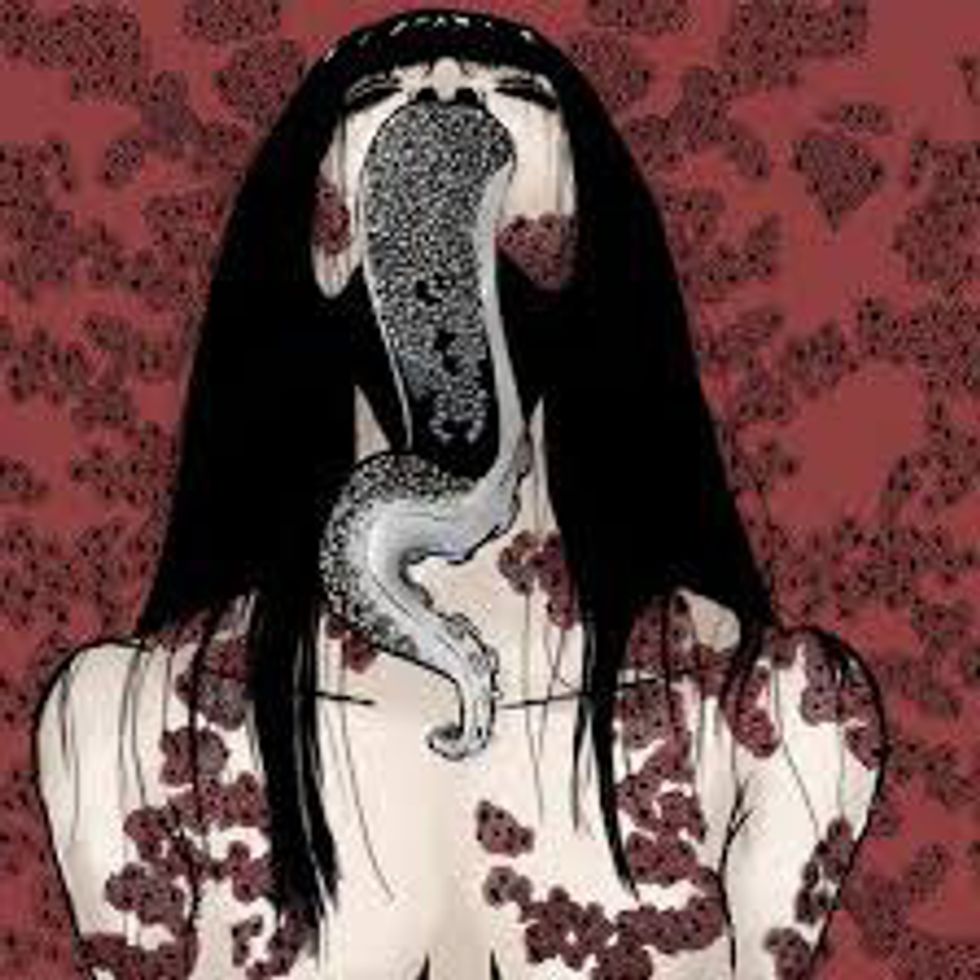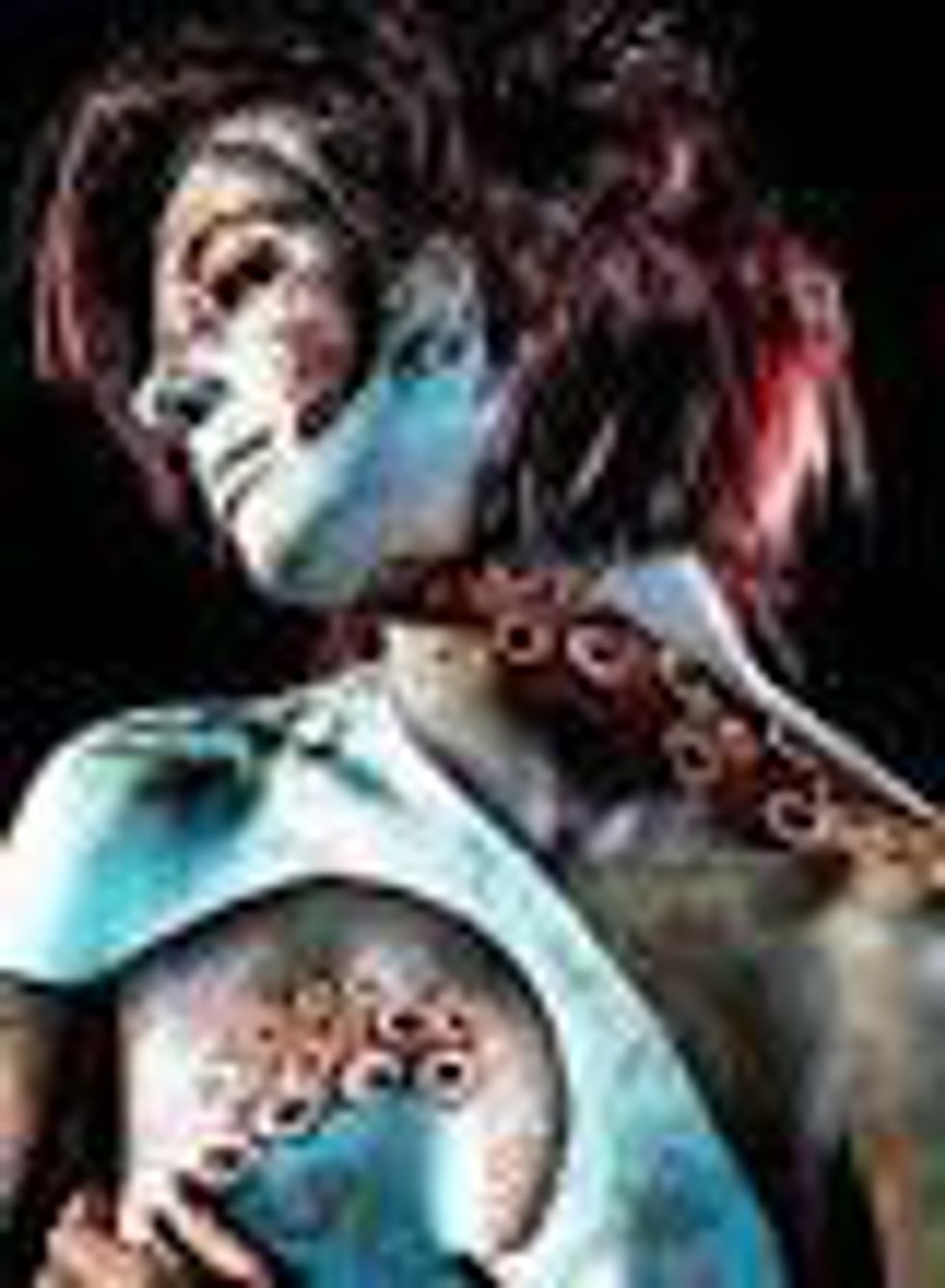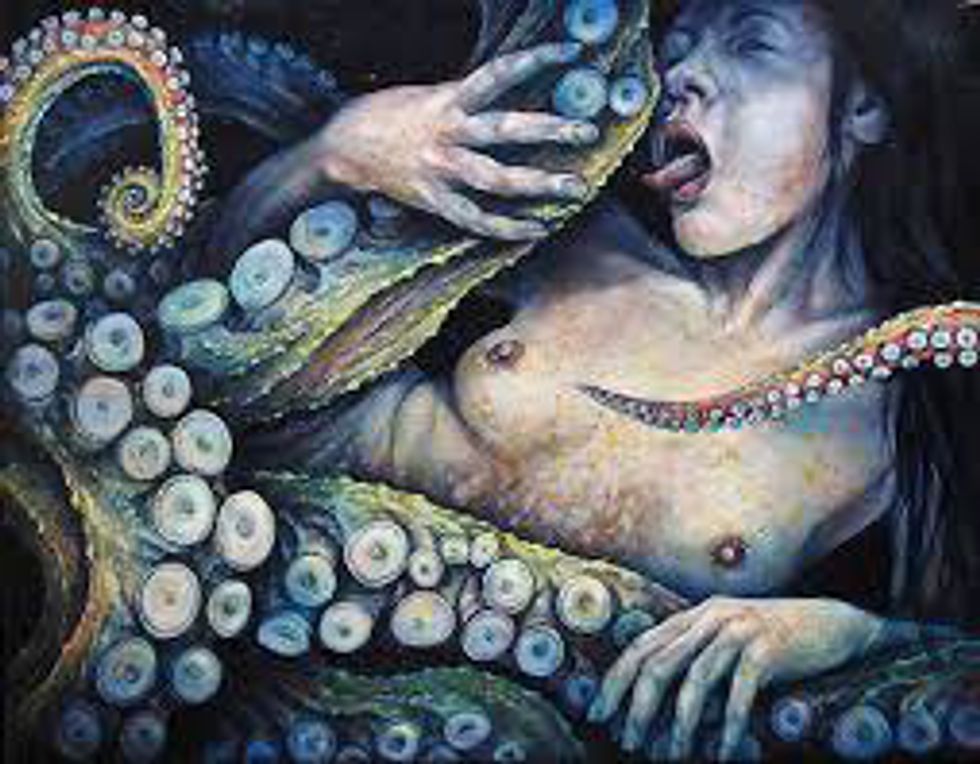For some time now, the question of Ursula, the half-woman, half-octopus villain of Disney’s "The Little Mermaid," as a character has been plaguing my mind.
Who is Ursula? Where does she come from? Why do we demonize her so much when she made it very clear to Ariel not to violate her contract? Why is Ursula made out to be a very butch-looking female?
Recommended for you
This morning, I finally decided to look into answers to these burning questions of octo-people in Disney films, and a quick Google search led me to some rather interesting finds. So prepare yourselves for some strong feminist opinions with no real academic supporting evidence! (I consider this a fun opinion piece, so just bear with me here).
In my initial search, I simply looked up “What about Ursula” in the Google search bar. I mean, really, we get a wonderful background on Maleficent, so wouldn’t it be rad to see the development of Ursula as a character and eventual villain?
“What about Ursula?” turned up little to no results, other than a quick examination of Ursula’s gender and sexuality as part of a longer list of other Disney villains (and general cartoon villains) and how they are often portrayed as queer or gender non-conforming. There was also a brief article done on Ursula on Bustle, arguing that people should pay more attention to Ursula as reclaiming power through breaking silence–more on this later.
Ursula is painted as a deep-voiced, short-haired, robust woman (or rather, all of the obvious and obnoxious stereotypes that paint the classic “dyke” lesbian). Male villains in cartoons are also painted as gender non-conforming, displaying feminine tendencies in their speech and hand motions (see: Scar from "The Lion King" and Jafar from "Aladdin"). Why cartoonists and Disney in particular find it useful to paint bad guys as queer or relate being non-binary to being evil, I don’t know, but I do know it really ticks me off.
Ursula clearly falls victim to the stereotype of a masculine woman, just as she is also a mer-person without a fish tail, but with octopus tentacles. Perhaps I’m looking too deep into this (although, as a liberal arts major, unapologetically so) but maybe this portrayal of Ursula’s bottom half as different from the rest of the mer-inhabitants of Atlantis is something of a representation of Ursula as an “Other.” I find this representation rather compelling, although perhaps unintentional, and very telling of societal constructions and how often those who are unlike the majority are exiled.
Which brings me to Ursula’s back story and history.
Some self-proclaimed “Disney Dad” posted questions (a small rant) on a public forum asking about Ursula as a character. Other than Ursula’s appearance on the list of villains that are typically portrayed as non-binary and/or queer, this was the only other viable hit after my “What about Ursula” search via Google.
This rather well-spoken Disney Pop was curious as to why Ursula would be banned from the kingdom of Atlantis, and what the real beef was between Ursula and Triton. He also went on to question the relationship between Triton and Ursula, Ursula’s overall history in Atlantis and what made Ursula such an evil villain when she clearly warned Ariel the importance the contract she signed, and the consequences Ariel would face upon breaching contract.
Although of course Ursula’s garden of lost mer-souls was a bit perturbing, I have to agree with Disney Dad in that we can’t really fault Ursula for following through with her terms of contract. (I’m laughing to myself as I side with the evil purple octopus lady; should have seen this coming.)
So I read into the comments in response to D-Dad, and they were surprisingly rather informative. Several commenters referenced the original story of "The Little Mermaid," discussing how radically different the Disney-fied version of the story was from the original lore. Apparently, the original is much more creepy and sad. I’ll take their word for it.
Other commenters went on to add more about the Broadway version of "The Little Mermaid," and how it was directly connected to the Disney tale (see what I did there?) but in fact, went more in depth with Ursula as a character. Commenters mentioned how Ursula was Triton’s sister, and that she used to be a part of Atlantis’ kingdom and royalty. According to these mer-aficionados, Ursula became banned after attempting to practice black magic. The story goes that such magic wasn’t allowed in Atlantis, and therefore Triton exiled his own sister to forever live beyond the walls of the kingdom.
I don’t know about you guys, but if my brother banished me from my home for my taste in hobbies, I’d be a little bitter, too. Of course, I’m kidding to a degree, as clearly Ursula’s dark magic was powerful and perhaps even soul consuming–but did Triton really have to ban her, instead of trying to understand her and maybe help her better realize the dangers of such a practice? Maybe Triton and the rest of the royals of Atlantis were afraid of such magic and didn’t understand it as it was so foreign to them and therefore, rejected it entirely. This sounds oddly like an individual in actual life being cast out from society and/or their own home for their differences. Makes ya wonder about the true dynamics of the social structures within Atlantis, and the circumstances surrounding Ursula’s banishment.
Finally, the commenters mentioned how in the Broadway version, Ursula has a monologue that discusses Ariel’s punishment for breaking her contract, in which she states something to the effect of “Women don’t know how precious and powerful their voices are until they’ve lost them.”
Now, back to the Bustle article I mentioned earlier: Katherine Cusumano writes a fantastic piece on Ursula titled "Why We Have To Change The Way We Think About Ursula From 'The Little Mermaid.'" In the piece, Cusumano writes, “Ursula knows what Ariel only learns by the film's end: Her voice is more important than her body. Her ability to express herself will bring her more power than her ability to conform to societal pressures.”
I wholeheartedly agree with Cusumano’s sentiment here, and it aligns with my very point of this article. Ursula is a beacon and a symbol of a woman scorned, ripped of her agency and voice. She is angry, she is bitter, she is different and misunderstood!
Cusumano goes on to discuss how Ursula is more desirable to Prince Eric once she steals Ariel’s voice and transforms into a beautiful girl: “When Ariel signs away her voice, she unwittingly signs away her power. Ursula transforms into a beautiful human rival to the mute Ariel in an effort to win Prince Eric away from the mer-princess, and it's her siren song that attracts him even more than her good looks. The woman who doesn't keep her silence threatens to come out on top.”
As we all know, Ariel wins back her voice and gets the guy in the end…but Ursula is murdered. Although I agree with and understand Cusumano’s well-written dissection of voice as the ultimate wielding of power, it isn’t enough for me in terms of the story of Ursula herself. I know Ursula, being the villain, had to die at the end–as Cusumano said, “This is a Disney princess movie, after all”–I get it. But why do we allow ourselves to remain convinced that Ursula was just plain evil?
I think that my paraphrase of Ursula’s commentary on the voice of a woman and her power says it all: Ursula was ripped of her voice, she was angry, solitary and silenced. Thankfully and luckily for young Ariel, she was able to learn the importance of her voice through her trials with the maddened Ursula. So, if you think about it, Ariel wouldn’t be as strong and complete without the tribulation of the loss of her voice that Ursula induced.
For me, Ursula stands for me as something of a hero, a martyr. She fell from grace once exiled for her differences. She was made out to be a deep-voiced, butch, overweight hag in the film, effectively associating queerness with badness, and perpetuating fat shaming. Overcome with her own loss, silence and solitude, Ursula lashed out against people who were willing to give up the one thing that she wished she never had to part with, the power of voice.




